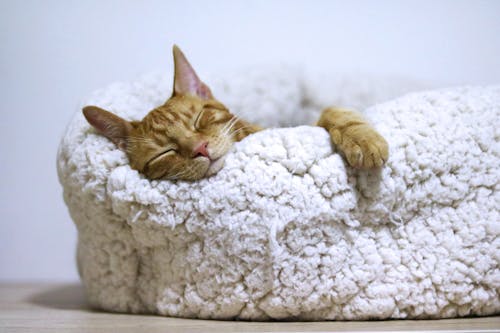Why Is Sleep Important
Why Is Sleep Important?
Sleep is the balm that soothes and restores after a long day. Sleep is largely driven by the body’s internal clock, which takes cues from external elements such as sunlight and temperature. The body’s natural sleep-and-wake cycle is reasonably attuned to a 24-hour period.
Disruptions of sleep are disruptive to the functioning of many body systems. Learning, memory, stamina, general health, and mood are all affected by sleep amount and quality. For many people, sleep is elusive or otherwise troubled.
In fact, most people, at some point in their lives, experience difficulty falling asleep or staying asleep. Potential consequences of consistently poor sleep include obesity, cardiovascular disease, and diabetes. Sleep deprivation can also affect judgement and mental acuity.
In fact, most people, at some point in their lives, experience difficulty falling asleep or staying asleep. Potential consequences of consistently poor sleep include obesity, cardiovascular disease, and diabetes. Sleep deprivation can also affect judgement and mental acuity.
Sleep needs differ from person to person and across different age groups. One person may need a full eight hours, while another can function with less sleep. The good news is that treatment of sleep disorders is rapidly progressing.
How Much Sleep Do I Need?

Note that falling asleep as soon as one's head hits the pillow is not proof that one is a good sleeper. It's more likely an indication that an individual is sleep deprived. In general, it should take about 10 to 20 minutes for a person to drift off. But whether it takes 20 minutes or 45, if one perceives that it is taking too long, that becomes one's reality, as it spurs anxiety about sleep.The National Sleep Foundation provides these daily sleep guidelines:
- Infants (4-11 months): 12-15 hours
- School age children (6-13): 9-11 hours
- Teenagers (14-17): 8-10 hours
- Young adults (18-25): 7-9 hours
- Adults (26-64): 7-9 hours
- Older adults (65+): 7-8 hours
How Can You Get Better Sleep?
Most people have heard the standard sleep hygiene advice: Make sure your bedroom is cool and dark. Use your bed only for sex and sleep. Avoid caffeine from mid-afternoon on. And avoid all screens for at least an hour before turning in; those screens' melatonin-inhibiting blue light delays sleep latency by an average of 10 minutes. Falling asleep in front a TV, as 61 percent of adults confess to having done, is a problem as well: The screen's light penetrates the eyelids, so the brain still processes that it is being exposed to light. This phenomenon staves off achieving the more refreshing stages of deep sleep.
The most common sleep difficulties are exacerbated by factors like illness or stress. Along with addressing those concerns, other practical adjustments can sometimes help restore healthier, more consistent rest. Controlling the light in one's bedroom, both natural and artificial, to maintain darkness throughout the evening, is an important step.
Do Sleep Apps Work?
Before you consider devices new to market, think old-school: Is it time to replace your mattress? The Better Sleep Council states that mattresses should be replaced every 7 to 10 years; older ones tend to stop providing adequate support, resulting in restless, inadequate sleep; they also accumulate allergens which can further disrupt sleep.
Many sleep experts endorse the use of weighted blankets, and not just for those with conditions like restless leg syndrome. Users find that the blankets provide the same type of comfort as hugs or swaddling for babies.
Wearing a sleep-tracking bracelet that can record when one falls asleep and wakes up, and detect interrupted sleep, can also help some people. Ironically, its primary benefit may be providing reassurance to those who believe they’re getting hardly any sleep—a phenomenon known as paradoxical insomnia.
If one is experiencing poor sleep, dedicating at least two weeks to improving their sleep hygiene may solve the problem. If not, and if one continues to experience steady sleep disruption or insomnia, it may be time to consult an expert in sleep medicine. Intrinsic issues like sleep apnea and restless leg syndrome affect 22 million and 12 million Americans, respectively.




Post a Comment